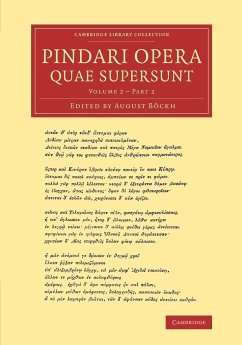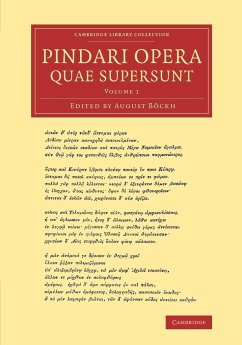
Aristophanis Comici Quae Supersunt Opera V1
Undecim Fabulas Superstites Continens (1886)
Versandkostenfrei!
Versandfertig in 1-2 Wochen
43,99 €
inkl. MwSt.

PAYBACK Punkte
22 °P sammeln!
Liber Aristophanis Comici Quae Supersunt Opera V1: Undecim Fabulas Superstites Continens (1886) auctore Aristophane, continet undecim fabulas superstites. Aristophanes, poeta Graecus, notus est propter suum genus comediae, quod saepe ridiculum et satyricum est. In hoc libro, fabulae eius sunt plenae humoris et satis acerbae. Quaedam fabulae includunt personae mythicas, tales ut deus Dionysus et dea Athena. Alii personae includunt homines Athenienses, quorum vita quotidiana est satyricum representata. Hoc opus est textus importantis in historia litterarum Graecarum et est utile ad intellegendum...
Liber Aristophanis Comici Quae Supersunt Opera V1: Undecim Fabulas Superstites Continens (1886) auctore Aristophane, continet undecim fabulas superstites. Aristophanes, poeta Graecus, notus est propter suum genus comediae, quod saepe ridiculum et satyricum est. In hoc libro, fabulae eius sunt plenae humoris et satis acerbae. Quaedam fabulae includunt personae mythicas, tales ut deus Dionysus et dea Athena. Alii personae includunt homines Athenienses, quorum vita quotidiana est satyricum representata. Hoc opus est textus importantis in historia litterarum Graecarum et est utile ad intellegendum genus comediae Graecae.This scarce antiquarian book is a facsimile reprint of the old original and may contain some imperfections such as library marks and notations. Because we believe this work is culturally important, we have made it available as part of our commitment for protecting, preserving, and promoting the world's literature in affordable, high quality, modern editions, that are true to their original work.












